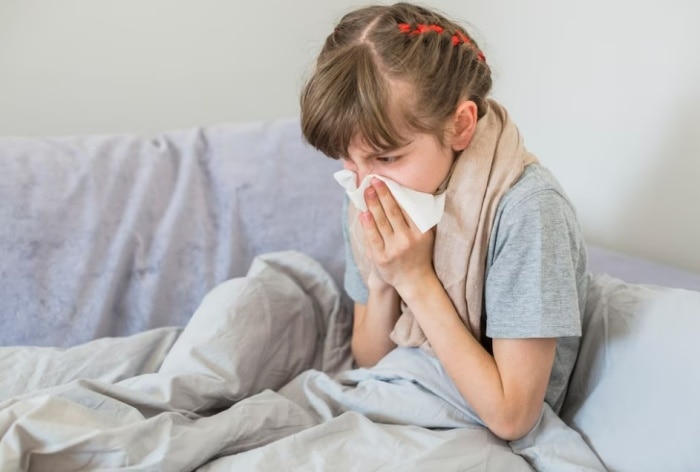RSV is a growing concern in infants. With change in season, the viral respiratory issue is once again on a rise. Here is a mini guide about RSV symptoms and ways to lower its risk.
Viral infections are on a steady rise everywhere. Monsoon season has further catalysed the infection rate as well due to humid and inclement weather conditions. During this time respiratory diseases witness a surge. Respiratory Syncytial Virus Infection (RSV) is a giant germ problem, especially for little kids. According to the World Health Organisation, ” human RSV is a globally prevalent cause of lower respiratory tract infection in all age groups. In infants and young children, the first infection may cause severe bronchiolitis that can sometimes be fatal.”
According to the Centers for Disease Control and Prevention, RSV is a lower respiratory virus that causes cold-like symptoms. Most people recover in one to two weeks, but in some cases, RSV can be serious, particularly in infants and older adults. In a new study published August 15 in JAMA Network Open, researchers looked at 600 infants who were hospitalized in the intensive care unit for RSV. They found over 80% of these children did not have any underlying health conditions before their illness.
WHY RSV AFFECTS INFANTS AND WHY IS IT RISING?
This virus mostly affects babies, newborns, and toddlers because their breathing system is still developing. When RSV gets into their bodies, it affects their respiratory system, making it harder for them to take deep breaths and get enough oxygen. Children infected with RSV usually show symptoms within four to six days.
According to experts, RSV is a a seasonal diseases that mostly affects the infants even though healthy. With dynamic season change and ofcourse the added unpredictable environmental variables, the virus may be on a rise again but some probable reason could be:
- The RSV virus is spread through aerosols (droplets present in the air) and direct contact. It is usually spread by touching contaminated surfaces or objects and then touching the nose or mouth. RSV infection is a highly contagious virus and it can be spread easily in crowded places such as malls, schools, and daycare centers.
- RSV infection is more prevalent during weather changes, especially between the summer and monsoon seasons when respiratory problems are more common, making it important to be vigilant during this time.
- Babies who are born prematurely or who are weak from birth are at a higher risk of RSV infection. In severe cases, RSV infection can cause bronchiolitis, pneumonia, or other breathing problems that may
RSV Symptoms, causes & Prevention
- Coughing and sneezing
- Fever
- Sore throat and swelling in the throat
- Breathing difficulties and weakness
- Respiratory distress, such as wheezing or a whistling sound while breathing
Prevention
- Washing hands frequently: Parents should encourage their children to wash their hands regularly, which helps prevent the spread of RSV and other infections.
- Avoid Close Contact with Sick Individuals: Limit exposure to people who have cold-like symptoms or respiratory infections, especially during RSV season.
- Always clean the surface: Always disinfect frequently touched objects, such as toys, door handles and light switches, to prevent the spread of viruses.
- Cover Coughs and Sneezes: It is very important to teach children to cover their mouths while sneezing so that no one else gets caught in these diseases.
- Vaccination: There is no dedicated vaccine for RSV, immunization against other preventable illnesses like influenza can potentially lower the chances of respiratory complications in children.
- Maintain a Healthy Environment: Ensure that children are in a clean and hygienic environment to minimize exposure to infectious agents.
This virus is a big concern for young children, especially for babies and little kids. Knowing the signs, risks, and ways to prevent it can keep children safe from serious infections and problems. Taking care of hygiene and avoiding places with germs can stop RSV from spreading.

Don’t Miss Out on the Latest Updates.
Subscribe to Our Newsletter Today!


